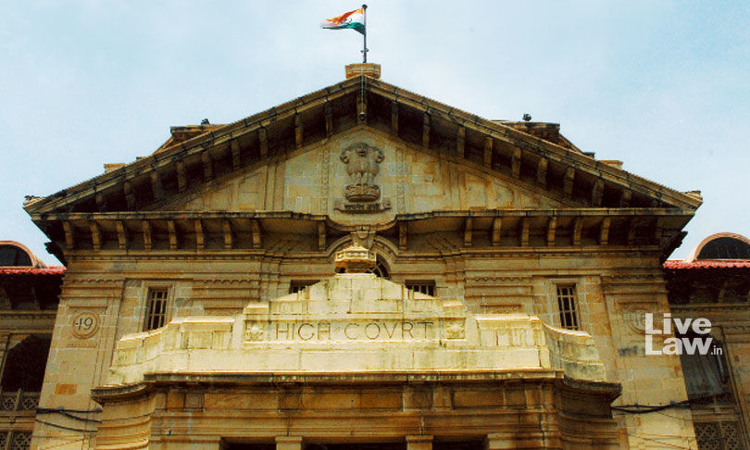Allahabad HC Rejects Young Lawyers' Request To Appear Via Video Conferencing
Akshita Saxena
23 Jun 2020 12:43 PM IST

"It stipulated that lawyers above 65 yrs of age will not be permitted to attend the court physically and they may argue through video conferencing"
The Allahabad High Court has lately been declining the lawyers' request to enter appearance via video conferencing, stating that the facility is available only for those aged above 65 years.
In one such order passed by a vacation bench yesterday comprised by Justices Ramesh Sinha (Senior Vacation Judge) and Samit Gopal, an Advocate's request to appear via video conferencing was rejected and the criminal miscellaneous writ petition was adjourned for about 3 weeks.
"It has been informed by the Office that learned counsel for the petitioner Ms. Swati Agrawal Srivastva by means of an application through e-mail has made a request for providing web link to her to argue the matter through video conferencing.
From the said application, it does not transpires whether she qualifies the advisory issued by this Court for the Advocates for getting the web link to argue the matter through video conferencing or not, hence the said application is hereby rejected," the order stated.
The matter was thereafter adjourned for hearing on July 14, 2020.
The guideline referred to in the above order was issued on May 30, whereby it was announced that the High Court will "function as usual" from June 8 onwards. It stipulated that lawyers above 65 yrs of age will not be permitted to attend the court physically and they may argue through video conferencing.
"The Learned Advocates aged 65 years or more may appear and argue the cases through video-conferencing as they would not be allowed to enter in the High Court as per the applicable protocol for lock-down," the guidelines state.
On the strength of this guideline the High Court in another order dated June 17, 2020, passed in a criminal miscellaneous writ petition said,
"As per the guideline issued by the High Court for the hearing of cases through video-conferencing, the Advocate should be of 65 years or above but from a perusal of the application filed by the counsel for the petitioner Sri Sayyed Kashif Abbas Rizvi praying for hearing of the case through video conferencing, it does not transpires as to whether he is 65 years of age due to which he is unable to attend the Court.
In view of the above, the prayer for hearing the present matter through video conferencing is rejected."
The case was posted for hearing on July 15.
It is worthwhile to note that the Guidelines dated May 30 nowhere state that hearing via VC will be provided "only" to Advocates above 65 years of age. Rather, point number 6 of the annexure attached to the Circular for "Arrangement for functioning of High Court during COVID-19" stipulates that:
"The facility of hearing cases through video conferencing shall be provided on asking by the Advocate."
Criminal miscellaneous writ petitions are usually filed for quashing of FIR, stay of criminal proceedings, etc.; relate to the personal liberty of individuals and are therefore urgent in nature.
Thus, the orders declining the request for appearance via video conferencing in the above matters during the impending threat of a pandemic and fixing of long dates, not only places the concerned lawyers in a conundrum but also adversely affects the rights of litigants.
The abovementioned orders, which are only few of the lot, are antithetical to the Supreme Court's direction to reduce the need for physical presence of stakeholders within court premises and to implement virtual hearing system.
"Every individual and institution is expected to cooperate in the implementation of measures designed to reduce the transmission of the virus. The scaling down of conventional operations within the precincts of courts is a measure in that direction," the Top Court had observed while issuing a slew of directions to streamline the functioning of Indian courts via video conferencing.
The orders also overlook the earnest request made by Dr. Justice DY Chandrachud, Chairperson of the E-Committee of the Supreme Court, to embrace video conferencing and virtual court platforms to deliver Justice to litigants.
Though the Government has announced "Unlock" phase and there is no legal bar on re-opening of courts, the sudden spike in Covid-positive cases cannot be denied.
Moreover, the Allahabad District Court, situated just 4 kilometers from the High Court premises, has been declared to be a containment zone and is shut since June 11, 2020.
Forcing physical appearance of lawyers in such circumstances therefore may not be a feasible option.


